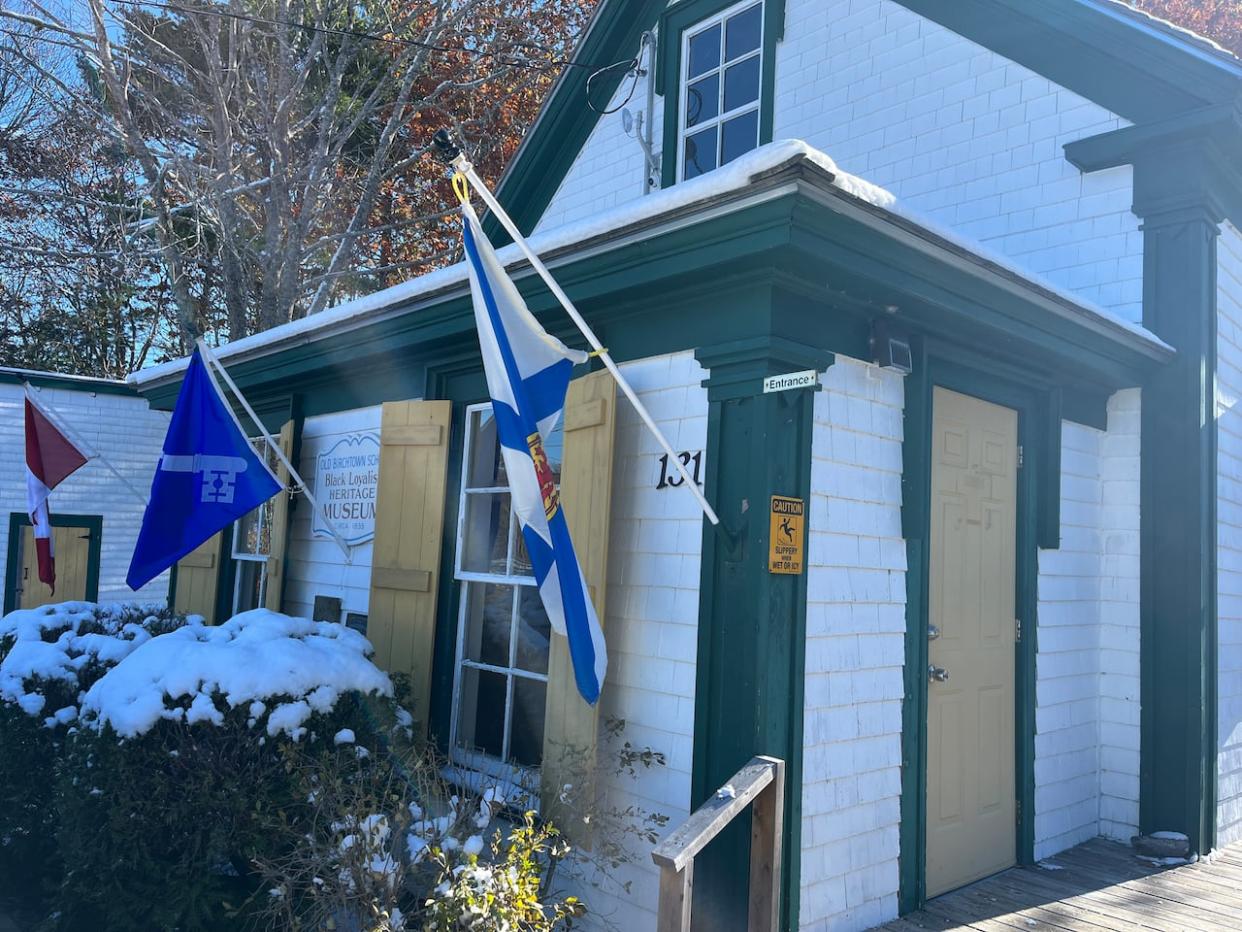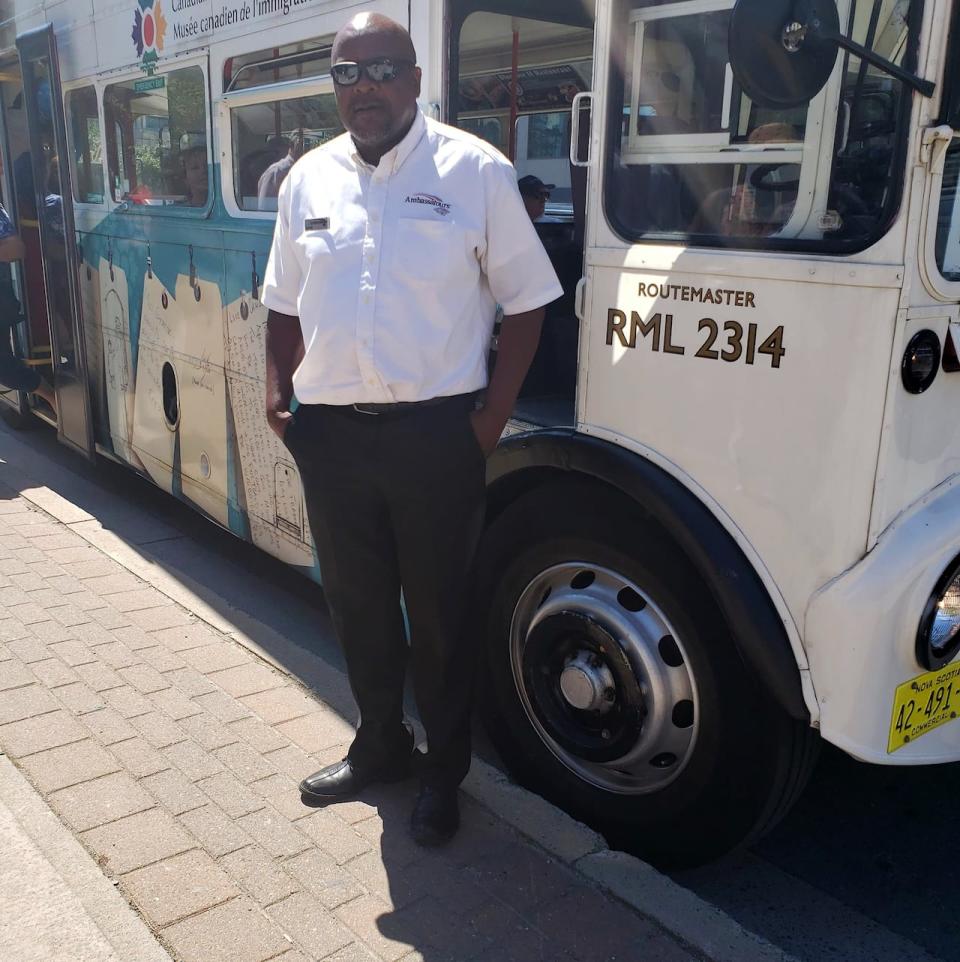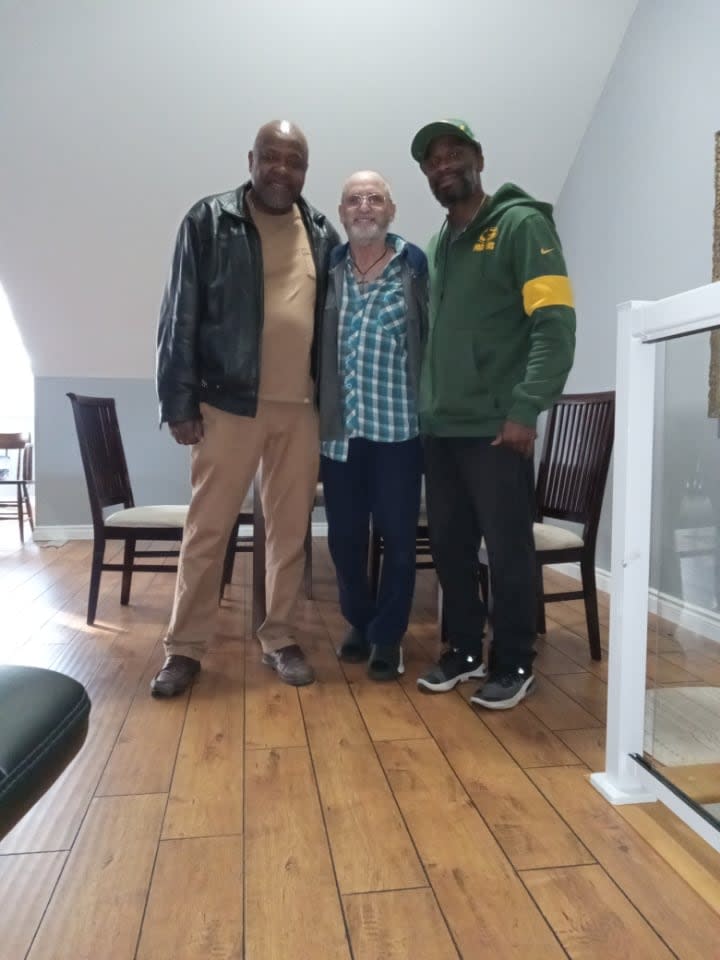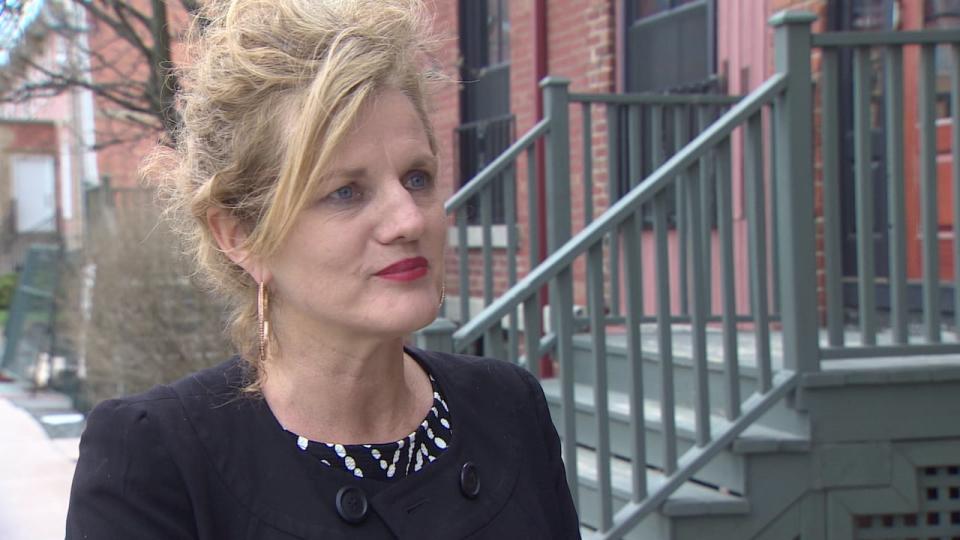New N.S. tourism company that would highlight Black cultural sites faces pushback

A new tourism company that wants to offer tours of Black heritage sites around Nova Scotia is facing pushback from competitors who say the market is already saturated.
Kevin Brooks started Ayomikun Bus Charters with two friends, Peter Field and Dalton Cain, last December. Their goal is to make Black history more accessible in the region by offering bus tours to locations like Birchtown and Shelburne.
Brooks, who previously worked at the provincial Department of Justice and for several years in the tourism sector, is a seventh-generation African Nova Scotian. He said his passion for history inspired him to start the company.
"I want to promote, not only the history, but the culture, the art, the music and [if] we have this tourism company, we can showcase a lot of talent in Nova Scotia," he said.
In January, Brooks applied to the Nova Scotia Utility and Review Board for a Motor Carrier Licence, which allows companies to operate vehicles that hold nine or more people.

Kevin Brooks has worked in the tourism sector before, but he hopes to start his own company that highlights Black cultural sites in Nova Scotia. (Connie Glasgow-White )
But Brooks says his application wasn't granted by the review board after three local tour companies objected. The UARB allows other operators to weigh in on the issue by submitting a letter.
If the UARB acknowledges the objection, the person applying for the licence must provide evidence to support their position, while those opposed must provide evidence to the contrary.
The UARB can decide to go ahead with a preliminary hearing and then a formal hearing.
Other tour companies object
Brooks's preliminary hearing happened on March 1. Two of the three companies that submitted objection letters were in attendance.
Titanic Historical Tours and Anchor Tours said they opposed the new company because there's no market for African Nova Scotian cultural tours, and they're worried Brooks's company could use the licence to move into their service areas if it doesn't work out.
One local company, Aberdeen Bus Tours, does offer tours of Black cultural sites, while the three opposing companies do not.
"I'm not opposing him doing just the Black tours — I have no issue with that whatsoever — I'm worried about the 'charter' part of it, and the company name does have 'charter' in there," Paul McNeil with Titanic Historical Tours said at the hearing.
"If this whole thing doesn't fly, then what's he planning on doing with the van — open-ended charters?"
Jeff Babineau with Anchor Tours also spoke out during the hearing.
"I think it's a very worthwhile endeavour that they're attempting to do, as with other cultural groups within the province," Babineau said.
"I do have some concerns here and I would say this with anyone looking to set up niche market tours, regardless of what the content is in itself … I have legitimate concerns in terms of overcapacity within the industry for existing operators."
Formal hearing happening Monday
CBC News contacted Titanic Historical Tours and Anchors Tours about interviews, but was denied by both companies. Prestige Limousine, the third company who submitted an objection letter, did not respond to requests.
Following the preliminary hearing, the UARB decided to go ahead with a formal hearing, which is set for Monday.
While Brooks has gotten nearly a dozen letters of support from the Black Cultural Centre and people like Minister of African Nova Scotian Affairs Twila Grosse and Halifax Regional Councillor Trish Purdy, who represents Cole Harbour Westphal-Lake Loon Cherrybrook, he's said the situation has been upsetting.

Kevin Brooks, left, Peter Field and Dalton Cain came up with the idea for Ayomikun Bus Charters. (Kevin Brooks)
"I thought it was a simple process," he said. "We go ahead, we incorporate, spent thousands of dollars and then we go and apply for the licence and we would get the licence and we'd meet all the requirements.
"So when we applied for the licence, then the UARB puts it up for anybody who opposes, like, why would you do that? That's the process, but it's not right."
Darlene Grant Fiander, the president of the Tourism Industry Association of Nova Scotia, said this isn't the first time her organization has heard complaints about the UARB's process.

Darlene Grant Fiander is the president of the Tourism Industry Association of Nova Scotia. (CBC)
She said the tourism industry association has given feedback to the review board about improving the process.
Grant Fiander said while some of the information Brooks wants to share during his tour is already being done by others, there's always room for more.
"We know people are interested in places that have a good sense of themselves," Grant Fiander said.
"We need to help develop our cultural tourism product in many different areas, and so that's what we're hearing out there. And we believe that's critically important."
Peter Mombourquette, a professor with the business and tourism and hospitality management department at Mount Saint Vincent University, also takes issue with the UARB's process.
'Market should dictate whether someone's successful'
He said it's a free market and allowing competitors to oppose is over-regulation.
"I don't think [other operators] should get to dictate or influence who's a competitor in that market, in particular a market that's trying to be served by a visible minority to promote his heritage and promote his culture," Mombourquette said.
"These are not essential services and ultimately the market should dictate whether someone's successful or not."
CBC News contacted the UARB for an interview, but was denied since the matter is ongoing.
Brooks said he remains optimistic. He said he's hopeful he'll be granted the licence and has already started talking with community groups to brainstorm touring ideas.
For more stories about the experiences of Black Canadians — from anti-Black racism to success stories within the Black community — check out Being Black in Canada, a CBC project Black Canadians can be proud of. You can read more stories here.

(CBC)
MORE TOP STORIES


